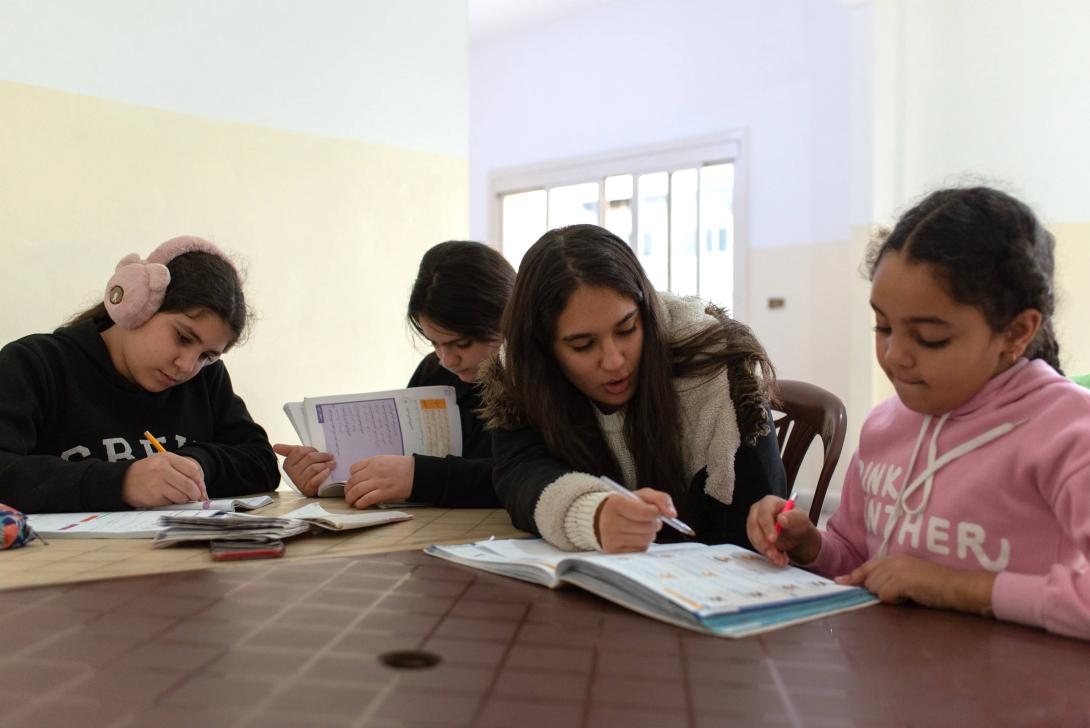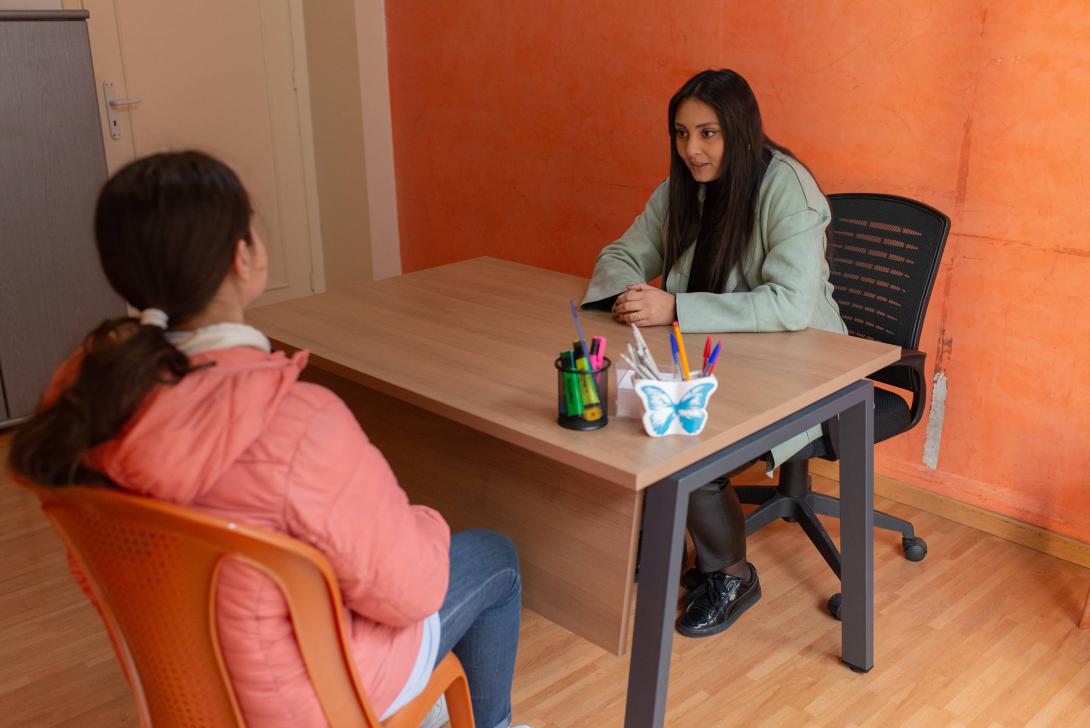

Women in Lebanon are particularly vulnerable to gender-based violence. They are very often confronted with physical, verbal or psychological violence.
For several years now, the country's major political and economic crisis has particularly affected the middle classes and the poorest members of society. Three quarters of the population live below the poverty line. Children represent a section of the population that is particularly exposed to a lack of food and healthcare, and in the most extreme cases, to abuse and exploitation. In these times of crisis, women and children are the first victims.
In this context, we are working with our local partner, the Soeurs du Bon Pasteur. The empowerment, protection, prevention and integration (APPI) programme we support is aimed at more than 800 girls aged between 9 and 18, 900 members of their families and 65 professionals at the three centres in Dora, Hammana and Beirut.

The support provided at the Dora centre
A reception centre has been opened in Dora, in the north-eastern suburbs of Beirut, to meet the educational, psychological and social needs of young girls.
The centre can host up to 45 girls in the afternoon for supervised study time and psychological, social and academic support, thanks to the work of a social worker and a psychotherapist. The team takes preventive action to prevent situations from getting worse: the support they receive is crucial to their future, as they are at serious risk of dropping out of school and being exposed to all kinds of dangers. The approach also seeks to include the parents: Nayri, the social worker, often works with the mothers to make them more responsible and stress the importance of communication within the family.
Much of the work is done by social workers who know the neighbourhoods. Often out in the field, they roam the streets, asking residents questions and making themselves known so that they can help those who don't know about the centre. Dora covers five of the most disadvantaged neighbourhoods in the area, but the needs of the population far exceed its capacity.
As well as providing educational support, the Dora centre is a place where girls are welcomed and listened to. “Young girls don't always open up easily; it takes time to build up a degree of trust.” adds Nayri. They are accepted at Dora only if they are in school, otherwise they are referred to establishments offering free training. After the initial interview, an educational programme can be launched.
Discover the story told by Mary, one of the centre's beneficiaries.
